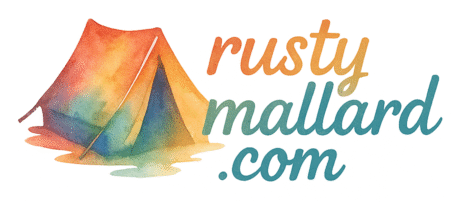If you’re brand new to camping, welcome to the wild side! There’s nothing quite like your first night under the stars—but trust me, the right gear can make or break that magical experience. Whether you’re planning your first weekend getaway or prepping for your first backcountry trip, this guide is going to save you from classic beginner blunders.
Let’s walk through the 10 must-have camping gear essentials for beginners in 2025 that’ll help you camp smarter, safer, and way more comfortably.
Why Choosing the Right Camping Gear Matters
The Struggles of a First-Time Camper
Ever pitched a tent in the dark? Or realized your sleeping bag isn’t rated for cold weather at 2 AM? These are rookie mistakes most campers make—because they didn’t gear up properly. And trust me, nature has a way of humbling us all.
How Quality Gear Can Make or Break Your Trip
Good gear doesn’t just make you look legit—it keeps you dry, warm, fed, and safe. Especially when you’re following beginner tips like those shared on Rusty Mallard, your gear is your best buddy.
1. A Reliable Tent for Shelter
What to Look for in a Beginner Tent
You want something easy to set up, durable, and weather-resistant. For beginners, freestanding tents with color-coded poles are perfect. Aim for a 3-season tent with solid ventilation and a rainfly.
Recommended Tent Types
- Dome tents – Great for wind resistance
- Pop-up tents – Super beginner-friendly
- Backpacking tents – Ideal for lightweight travel
Check out the full list of beginner-friendly tents on Rusty Mallard’s Camping Gear Guide.
2. Sleeping Bag for All Seasons
Temperature Ratings Explained
Don’t just grab the fluffiest one. Look for EN or ISO-rated sleeping bags. A “20-degree” bag means you’ll survive at 20°F—not necessarily sleep comfortably.
Tips for Staying Warm Overnight
Use a sleeping pad, wear dry base layers, and keep your head covered. Bonus tip: Toss a warm water bottle into your bag!
Explore sleeping gear tips over at Camping Tips.
3. Sleeping Pad or Camping Mattress
Sleeping Pad vs Air Mattress
Pads are lighter and insulate better. Air mattresses? Comfy but bulkier. If car camping, go cushy. If backpacking, go minimalist.
Rusty Mallard breaks it all down on Camping Destinations with gear suggestions tailored to each type of trip.
4. Portable Cooking Stove or Grill
Why You Shouldn’t Rely on Campfires Alone
Fire bans, wet wood, or bad weather can kill your cooking plans. Bring a compact stove or grill. Your stomach will thank you.
Fuel Types and Safety Tips
Use propane or isobutane for ease. Always cook away from your tent and keep fuel sealed.
Check out Rusty Mallard’s Camping Recipes for meal ideas perfect for beginners.

5. Lantern or Headlamp
Choosing Between Headlamp and Lantern
Headlamps are great for hands-free tasks. Lanterns are better for ambient light in tents or campsites. Why not both?
Also, don’t forget extra batteries or a solar charging option.
6. Water Filtration System
Water Filters vs Purifiers
Filters remove bacteria and protozoa. Purifiers get viruses too. Beginners? Start with a squeeze or gravity-fed filter system—it’s simple and effective.
Learn more water safety tips at Camping Safety.
7. Basic First Aid Kit
What to Include in a Beginner Camping First Aid Kit
- Antiseptic wipes
- Adhesive bandages
- Tweezers
- Pain relievers
- Blister pads
And don’t forget any personal medications! Being far from help makes preparedness vital.
8. Backpack with Storage Compartments
Capacity and Comfort for Multi-Day Trips
For weekend trips, 40-60L backpacks are perfect. Look for padded straps, hip belts, and water bottle pockets. Load it smart to keep essentials accessible.
Check out this gear guide for first-time campers.
9. Multi-Tool or Camping Knife
Functions to Look for
A solid multi-tool should include a knife, scissors, can opener, and screwdriver. Trust me, you’ll use it more than you think—from food prep to fixing broken gear.
More survival advice here: Survival Tag on Rusty Mallard
10. Weather-Appropriate Clothing and Footwear
Layering Systems for All Weather
Go with the 3-layer system:
- Base layer: Moisture-wicking
- Mid layer: Insulation like fleece
- Outer layer: Waterproof shell
And invest in quality hiking boots—they’ll save your ankles and keep blisters at bay.
For seasonal guides, check Rusty Mallard’s Rustic Lifestyle section.
Bonus Tips: Packing Smart and Staying Safe
Learn From the Pros at Rusty Mallard
Before you hit the trail, dig into beginner-friendly articles like:
- Beginner Camping Mistakes to Avoid
- Outdoor Advice You’ll Actually Use
- Life Lessons from the Wilderness
Conclusion
Camping doesn’t have to be overwhelming. With the right essentials, you’ll feel confident, prepared, and ready to take on the outdoors. Whether you’re roasting marshmallows or learning how to purify water from a stream, having the right gear ensures you enjoy the experience rather than endure it.
Let 2025 be the year you fall in love with camping. And when in doubt, visit Rusty Mallard for expert advice, trusted gear lists, and awesome beginner camping content!
FAQs
Q1: What’s the most important piece of gear for a beginner camper?
A solid, weatherproof tent. It’s your home away from home.
Q2: Do I need to bring food or catch it in the wild?
Bring it. Start with simple meals from Rusty Mallard’s Camping Recipes.
Q3: Is a campfire enough for cooking?
Not always. Fire bans happen. Always bring a backup stove.
Q4: How do I know if a sleeping bag is warm enough?
Check the temperature rating and always bring a sleeping pad for insulation.
Q5: Can I camp with regular clothes?
Technically, yes—but outdoor layers are safer and more comfortable.
Q6: What size backpack should I get?
For beginners: a 40-60L backpack covers weekend needs.
Q7: Where can I find beginner-friendly camping spots?
Try Rusty Mallard’s Camping Locations Tag for great starter spots in the U.S.


